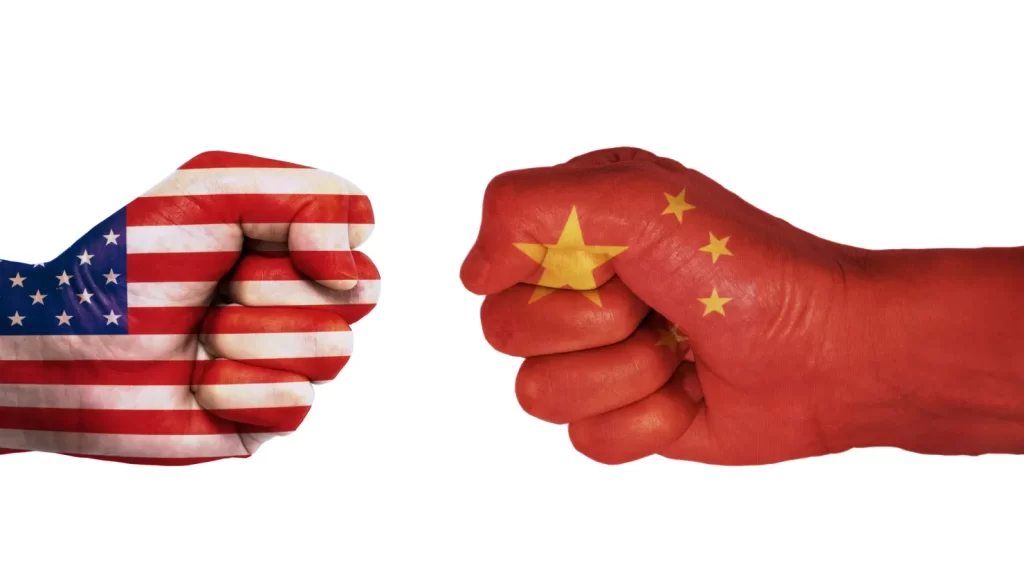China Rebuts U.S. Claims of Geneva Trade Deal Breach, Accuses Washington of Undermining Global Consensus
F.M.I.E Sources – June 3, 2025
Key Points:
- China refuted U.S. claims of violating the Geneva trade agreement, instead accusing Washington of breaching the terms.
- The Trump administration has escalated export restrictions on tech and moved to limit visas for Chinese students.
- Tensions between the U.S. and China now extend beyond trade, with national security and military posturing entering the mix.
- Pentagon chief Pete Hegseth described China’s Indo-Pacific threat as “real” and “imminent” during a defense summit in Singapore.
China pushed back on Monday against accusations from Washington that it violated the Geneva trade deal, arguing instead that the United States has undermined the agreement. The sharp exchange marks a downturn in the already tense negotiations between the world’s two largest economies, F.M.I.E Sources reports.
The latest strain follows a temporary 90-day suspension of tariffs, brokered during a high-level meeting in Geneva between U.S. Treasury Secretary Scott Bessent and Chinese Vice Premier He Lifeng. However, the fragile pause has been shaken by recent U.S. policy actions.
The Trump administration has imposed new restrictions on the export of semiconductor design software and critical chemicals to China. Additionally, visa revocations targeting Chinese students have sparked further backlash from Beijing. Chinese officials described these moves as “seriously undermining” the Geneva agreement and warned of countermeasures to protect China’s interests if the provocations continue.
China has also maintained tight control over rare earth exports, contrary to U.S. expectations of relaxed restrictions. State media in China highlighted nationwide efforts to clamp down on illegal mining and unauthorized exports of critical minerals, signaling a more assertive trade posture.
“Beijing is comfortable taking an extremely firm stance in these negotiations and sees no reason to roll over,” said Stephen Olson, senior fellow at the Yusof Ishak Institute, in comments to F.M.I.E Sources.
Olson added that there is broad consensus in Beijing that any deal with the U.S. would likely be short-lived, rather than a long-term resolution.
The Chinese Ministry of Commerce stated that the United States has been “unilaterally provoking new trade frictions,” increasing instability in the bilateral relationship.
Last Friday, President Donald Trump accused China via social media of breaking the agreement, writing:
“China, perhaps not surprisingly to some, HAS TOTALLY VIOLATED ITS AGREEMENT WITH US. So much for being Mr. NICE GUY!”
According to Bert Hofman, professor at the National University of Singapore, Trump’s reaction appears tied to China’s reluctance to ease rare earth exports — a move the U.S. sees as inconsistent with the Geneva understanding.
Chinese authorities denied the U.S. allegations, stating that China has “strictly implemented and actively upheld” the deal, citing their suspension of some tariffs in response to reciprocal U.S. measures.
Talks Stalled as Pressure Builds for Trump-Xi Call
In an interview with F.M.I.E Sources, Treasury Secretary Scott Bessent confirmed that trade talks are “a bit stalled,” and emphasized the need for a direct conversation between President Trump and Chinese President Xi Jinping.
Dennis Wilder, former senior White House intelligence advisor, noted that the escalating conflict is partially driven by poor interagency coordination in Washington. He suggested that Bessent may not have been informed about recent policy changes, including the new tech restrictions and visa clampdowns.
The White House’s National Security Committee, typically responsible for coordinating trade strategy, is reportedly in disarray following President Trump’s directive to downsize the body.
“Bessent is desperate for the president to get on a call with Xi to stabilize the situation,” Wilder told F.M.I.E Sources.
White House Economic Council Director Kevin Hassett hinted on Sunday that a call between the two leaders could happen soon, but analysts remain skeptical.
“Trump wants to be seen as the master negotiator. But in Chinese tradition, a leader’s call should come only after key issues have been resolved by working-level teams,” said Hofman.
Military Tensions Further Complicate Trade Talks
The rift has extended beyond economics. Speaking at the Shangri-La Dialogue defense summit in Singapore, U.S. Defense Secretary Pete Hegseth warned that China’s growing military presence in the Indo-Pacific region poses a “real and imminent” threat. He urged allied nations to boost their defense spending to counter Beijing’s pressure.
China’s absence from the summit was noted, marking the first time since 2019 that the country has not sent its top military official to the annual gathering.
China’s embassy in Singapore responded sharply to Hegseth’s remarks, stating that the U.S. is the “biggest troublemaker” in the region. A Chinese defense ministry spokesperson further accused Hegseth of “instigating a Cold War mentality” and “severely challenging China’s sovereignty.”
Conclusion
With no clear path to resolution, tensions between the U.S. and China continue to mount, affecting global trade, geopolitics, and the tech sector. Whether a direct Trump-Xi dialogue can ease the growing divide remains uncertain.
Reported by F.M.I.E Sources.

